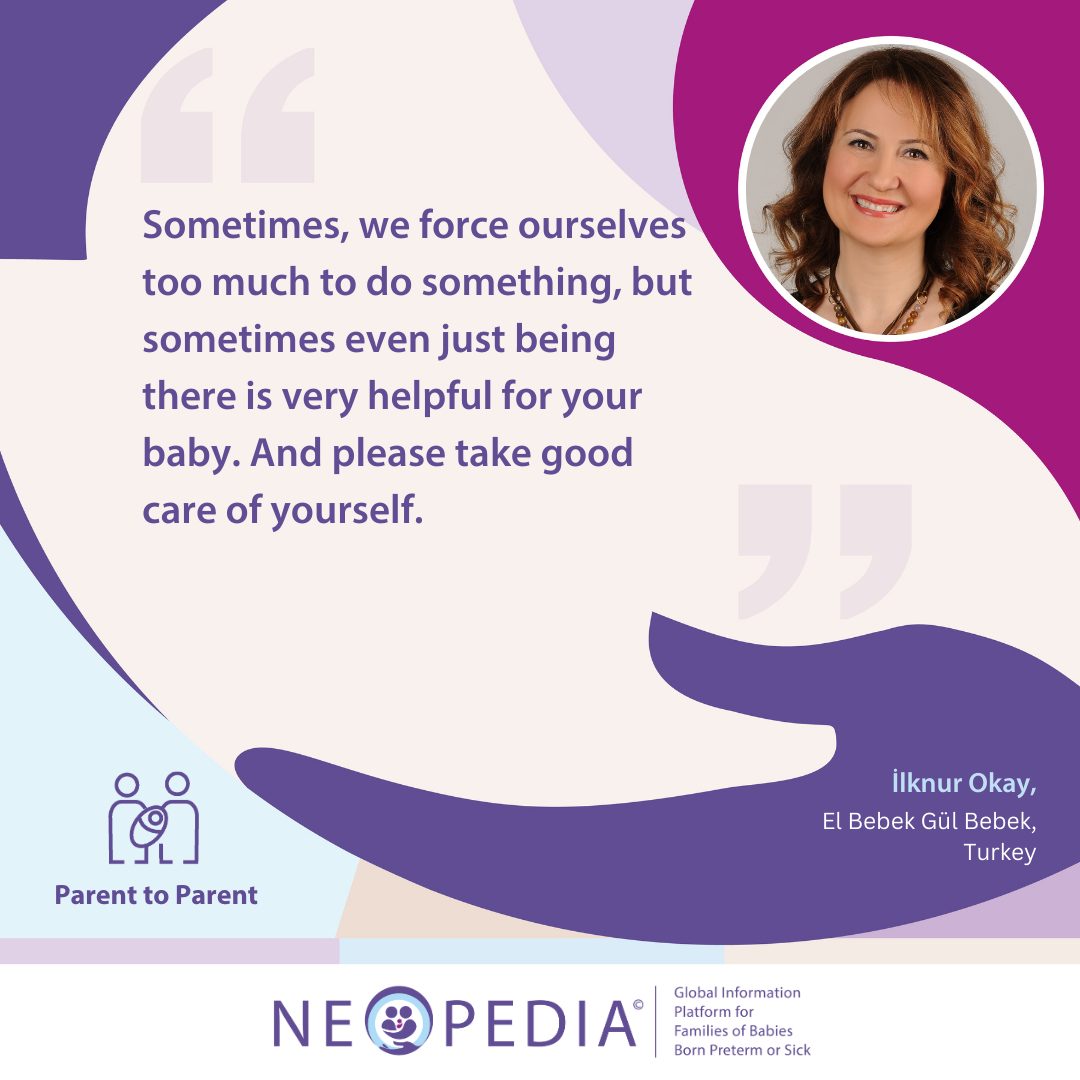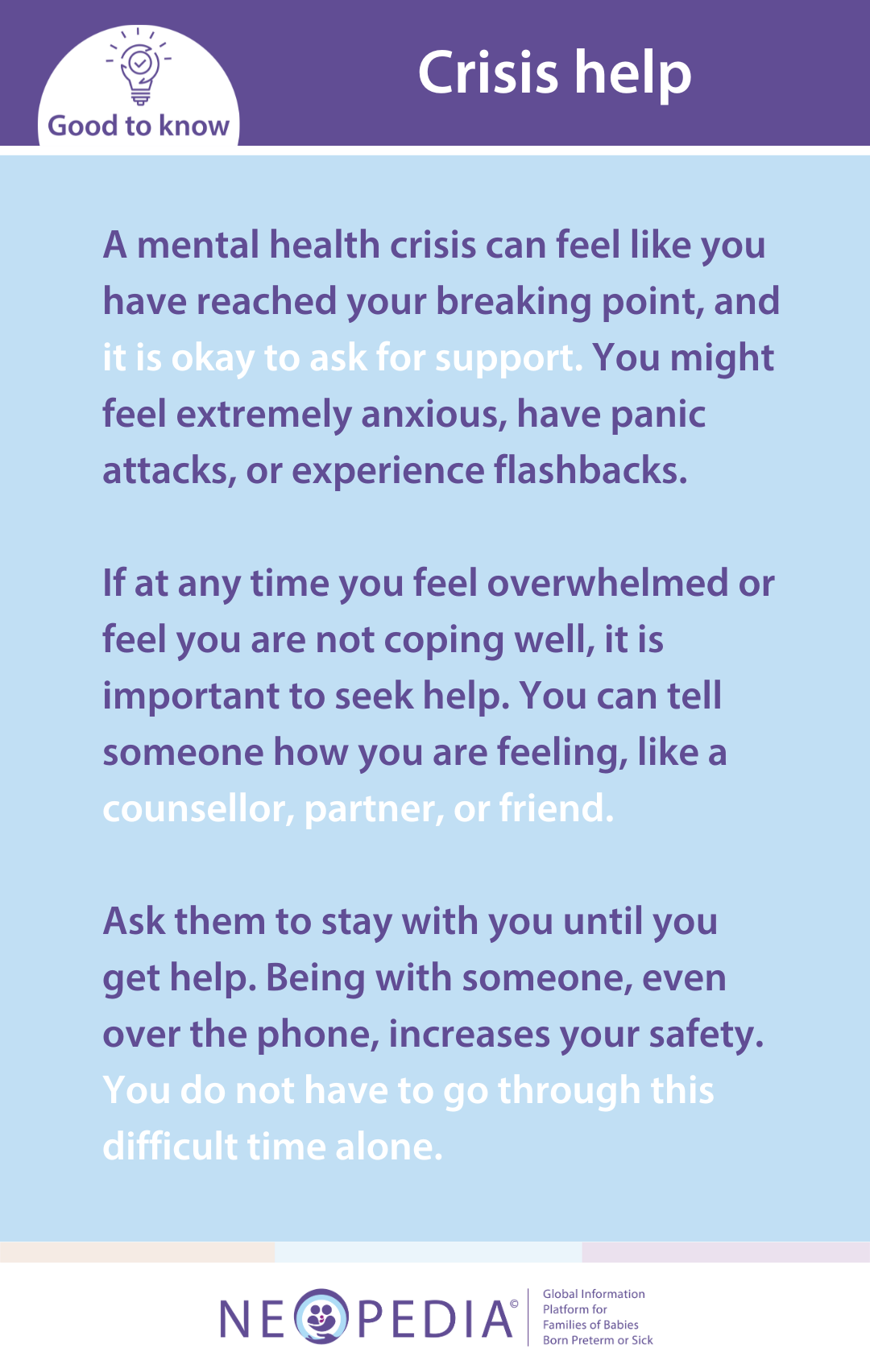
During your NICU experience, much of your energy will go into caring for your baby, and it is important to remember to care for yourself too. Acknowledge how challenging this time can be and do not hesitate to reach out for support. If you can, accept help from family and friends, take short breaks, or spend a little time outside to clear your mind. Remember, it is okay to feel overwhelmed – talking to someone, whether it is a loved one or a professional, can make a big difference. Take things one step at a time and do what feels manageable for you.
Keeping a journal of your NICU journey to write down daily events, thoughts, and feelings can also be beneficial. You can also use a mobile app for journaling and keeping track of your baby’s progress. Joining a support group is another good idea. Most hospitals have them, and it is a great way to meet others who are experiencing a similar journey. There may also be the option of virtual and community-based support resources. Additionally, meeting with a NICU social worker⍰, counsellor, or spiritual advisor might help you develop a self-care plan.
It is not uncommon to feel anxious or depressed after the birth of a preterm or sick baby. You are not alone. Many parents experience these feelings, especially during a long stay in the NICU. When something happens that is hard to process and has a big impact on your life, it can feel traumatic. You might feel numb, have trouble sleeping, or find it difficult to talk about your experience. In some cases, parents may have more intense feelings, like reliving the experience, vivid nightmares, or heightened anxiety⍰. It may also be hard to face certain places or situations linked to that trauma. These can be symptoms of post-traumatic stress disorder (PTSD)⍰. If you notice any of these signs, know that there is support available to help you through this challenging time. Do not hesitate to reach out to healthcare professionals or loved ones.

Contact a medical professional and tell them it is an emergency:

